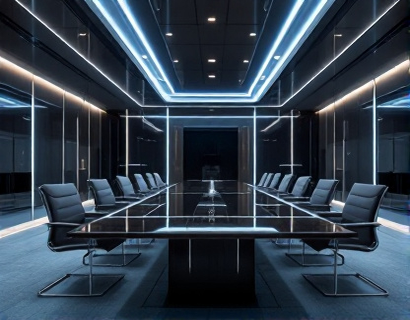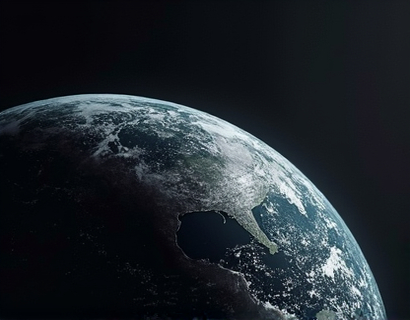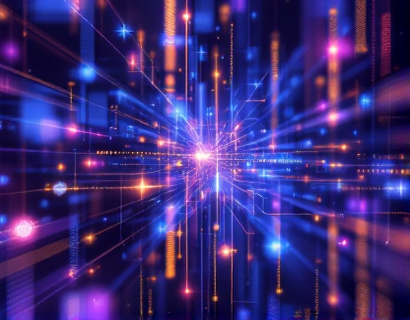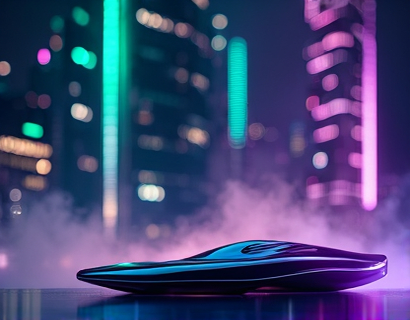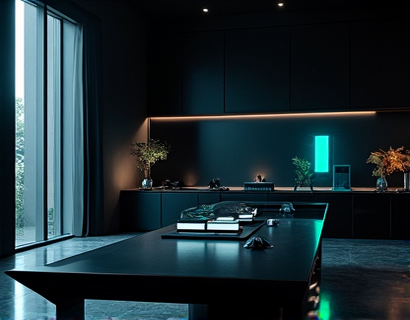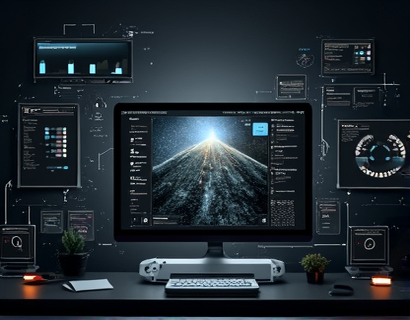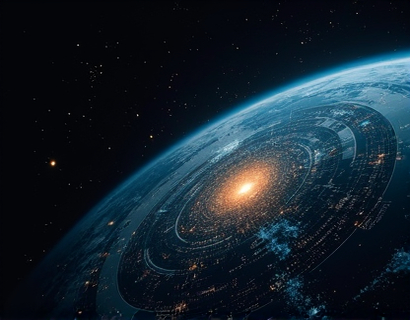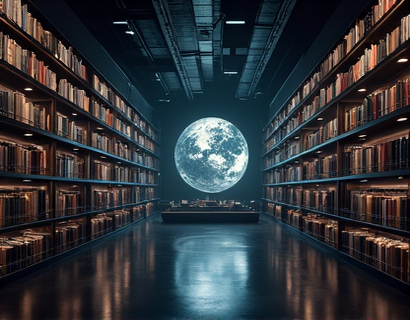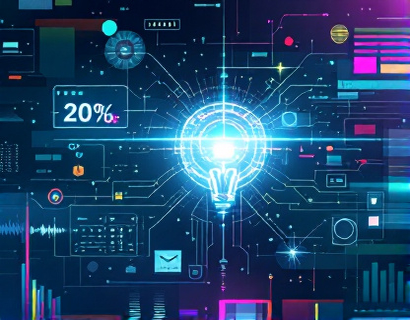Crypto and AI: Pioneering the Next Era of Digital Transformation
The intersection of cryptocurrency and artificial intelligence (AI) is giving birth to a new paradigm in digital transformation. This convergence is not just a technological curiosity but a powerful force reshaping industries and redefining how we interact with digital solutions. For tech innovators and early adopters, understanding this synergy is crucial to staying ahead in a rapidly evolving landscape.
The integration of AI into the crypto space has opened up unprecedented opportunities for innovation. AI algorithms can analyze vast amounts of data from blockchain networks, identifying patterns and insights that were previously inaccessible. This capability enhances the efficiency, security, and functionality of cryptocurrency systems. Conversely, the decentralized and transparent nature of blockchain provides a robust framework for AI models to operate, ensuring data integrity and reducing the risk of manipulation.
Enhanced Security Through AI
One of the most significant benefits of combining AI with cryptocurrency is the enhancement of security measures. Traditional cybersecurity methods often struggle to keep pace with sophisticated cyber threats. AI, however, can dynamically adapt to new threats by learning from past attacks and continuously updating its defenses. In the context of crypto, AI-driven security solutions can monitor transactions in real-time, detect anomalies, and prevent fraudulent activities with high accuracy. This proactive approach to security is essential for maintaining trust and reliability in the crypto ecosystem.
For instance, AI-powered systems can identify and flag suspicious patterns in trading activities, helping exchanges and wallets to implement more robust anti-money laundering (AML) and know-your-customer (KYC) protocols. These systems can also enhance the security of smart contracts by verifying the integrity of code and detecting potential vulnerabilities before deployment. The result is a more secure and resilient crypto environment, which is vital for widespread adoption.
Optimized Trading Strategies with AI
AI is revolutionizing the way traders approach cryptocurrency markets. Traditional trading strategies often rely on technical analysis and fundamental analysis, which can be time-consuming and prone to human error. AI algorithms, on the other hand, can process and analyze vast datasets in fractions of a second, identifying trends and making predictions with a level of precision that surpasses human capabilities. This capability allows traders to execute trades more efficiently and with greater accuracy.
Machine learning models can be trained on historical market data to predict price movements, optimize trading strategies, and manage risk. For example, reinforcement learning algorithms can simulate millions of trading scenarios to find the most profitable strategies. These models can adapt to changing market conditions, ensuring that trading decisions remain optimal over time. Additionally, AI can automate trading processes, reducing the need for constant human oversight and allowing traders to focus on higher-level strategic decisions.
Decentralized Finance (DeFi) and AI
The rise of Decentralized Finance (DeFi) has opened new avenues for financial innovation, and AI is playing a pivotal role in this space. DeFi platforms leverage blockchain technology to provide financial services such as lending, borrowing, and trading without intermediaries. However, the complexity and volatility of DeFi markets pose significant challenges for users and developers alike. AI can address these challenges by providing intelligent solutions that enhance user experience and system stability.
AI-driven risk management tools can assess the creditworthiness of users in decentralized lending platforms, reducing the risk of default. These tools can analyze a wide range of data points, including transaction history, social media activity, and other relevant factors, to create a comprehensive risk profile. Smart contracts can then use this information to dynamically adjust interest rates and loan terms, ensuring a balanced and fair system.
Furthermore, AI can improve the liquidity of DeFi protocols by optimizing liquidity provision and withdrawal strategies. By analyzing market conditions and user behavior, AI algorithms can recommend optimal times for providing liquidity or withdrawing funds, maximizing returns and minimizing risks. This level of intelligence is particularly valuable in the highly volatile crypto markets, where timing can make a significant difference.
Supply Chain Optimization with Blockchain and AI
Beyond finance, the combination of blockchain and AI is transforming supply chain management. The transparency and traceability offered by blockchain, coupled with the analytical power of AI, create a powerful tool for optimizing supply chains. This synergy ensures that products move efficiently from production to consumption, reducing costs and enhancing reliability.
AI can analyze data from various stages of the supply chain, from raw material sourcing to final delivery. By identifying bottlenecks and inefficiencies, AI algorithms can suggest optimizations that streamline operations. For example, predictive maintenance powered by AI can monitor the condition of equipment and predict when maintenance is needed, preventing downtime and reducing repair costs. Additionally, AI can optimize inventory levels by forecasting demand based on historical data and real-time market trends, ensuring that stock levels are always aligned with customer needs.
Blockchain ensures that all transactions and data exchanges within the supply chain are recorded transparently and immutably. This transparency builds trust among all parties involved, from manufacturers to retailers to consumers. Smart contracts can automate processes such as payment settlements and quality checks, reducing the need for intermediaries and speeding up the entire process. The result is a more efficient, transparent, and resilient supply chain.
Enhancing User Experience Through AI
The user experience in the crypto space can be significantly improved through the integration of AI. User interfaces can be personalized based on individual preferences and behavior, making the platform more intuitive and user-friendly. AI-driven chatbots and virtual assistants can provide 24/7 support, answering queries and guiding users through complex processes. This level of support is particularly valuable for newcomers to the crypto space, who may find the technology overwhelming.
Personalization extends to investment recommendations as well. AI can analyze a user's risk tolerance, investment goals, and market preferences to suggest tailored portfolio strategies. By continuously learning from user interactions and market data, these recommendations become increasingly accurate over time. This personalized approach not only enhances user satisfaction but also encourages more people to engage with crypto assets.
Challenges and Considerations
While the potential of combining crypto and AI is immense, there are several challenges that need to be addressed. One of the primary concerns is the regulatory landscape. The crypto space is still largely unregulated, and the integration of AI adds another layer of complexity. Ensuring compliance with existing regulations while innovating is a delicate balance that requires careful navigation.
Another challenge is the technical expertise required to develop and maintain AI-driven crypto solutions. Building robust AI models requires a deep understanding of both blockchain technology and machine learning. There is a shortage of professionals with this dual expertise, which can hinder the adoption of these technologies. Educational initiatives and collaborative efforts between tech companies and academic institutions can help bridge this gap.
Data privacy is also a critical issue. AI models rely on vast amounts of data, and the sensitive nature of financial data in the crypto space raises concerns about privacy and security. Implementing strong encryption and anonymization techniques is essential to protect user data. Additionally, adhering to privacy regulations such as the General Data Protection Regulation (GDPR) is crucial to maintaining user trust.
Future Prospects
The future of crypto and AI is bright, with numerous opportunities for further innovation. As AI algorithms become more advanced, we can expect even more sophisticated applications in the crypto space. For instance, the development of quantum AI could revolutionize how we process and analyze data, leading to breakthroughs in areas such as cryptography and consensus mechanisms.
Interoperability between different blockchain platforms is another area where AI can play a crucial role. AI-driven solutions can facilitate seamless communication and data exchange between disparate systems, creating a more interconnected and efficient ecosystem. This interoperability is essential for the widespread adoption of blockchain technology across various industries.
Moreover, the integration of AI with other emerging technologies such as the Internet of Things (IoT) and 5G networks will further enhance the capabilities of crypto systems. IoT devices can generate real-time data that AI can analyze to optimize various processes, from smart city infrastructure to industrial automation. The combination of these technologies will create a more connected and intelligent world.
In conclusion, the merging of cryptocurrency and AI is not just a technological trend but a transformative force that is reshaping the digital landscape. For tech innovators and early adopters, embracing this synergy is key to staying competitive and driving the next wave of technological advancements. By leveraging the strengths of both crypto and AI, we can build a more secure, efficient, and user-friendly digital future.




